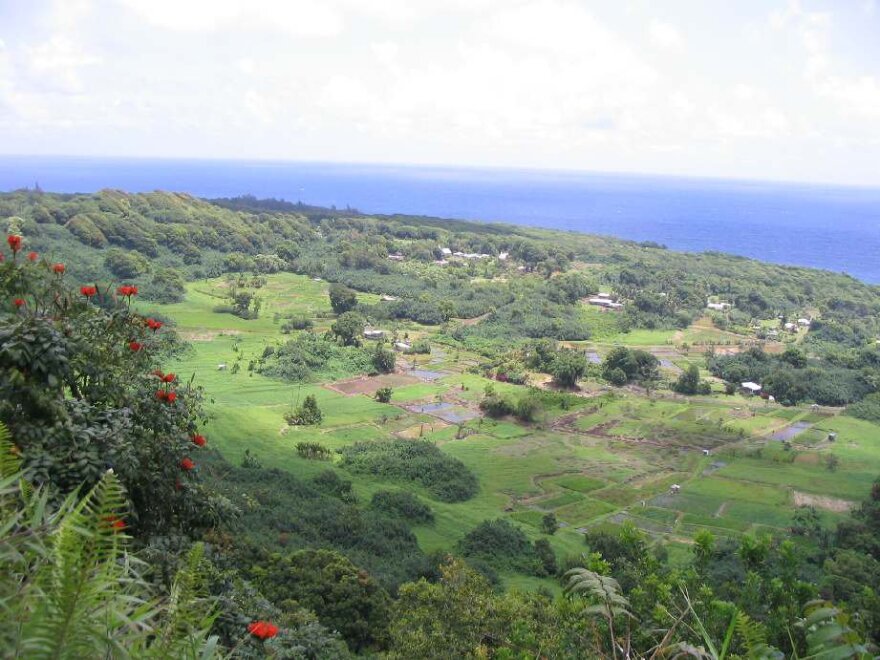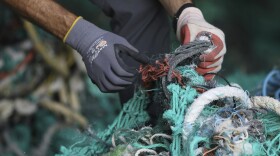State lawmakers are weighing a bill that would allow a dozen private users statewide, including Alexander and Baldwin, to continue to divert fresh stream water temporarily. The interim permits would remain in place until the state can issue long-term water leases. Critics say the measure ignores the impact even temporary diversions can have on public trust uses like taro farming.
[SOUND OF WATER FLOWING IN WAILUANUI]

This is water flowing into taro patches in Wailuanui on Maui. It’s a sound you wouldn’t have heard until recently. That’s because for a century, water was diverted to Central Maui for sugar cultivation. A court battle led by taro farmers ended the diversion and restored streamflow to East Maui in 2016.
“The right to farm taro and to sufficient water to farm taro is protected in the Hawai?i Constitution,” says Mahealani Wendt.
She married into a family with a long history of taro farming in Wailuanui.

Wendt is a vocal opponent of House Bill 1326 that would extend temporary permits that allow private users to divert the water for purposes like ranching and agriculture.
“Because we were harmed we don't want that practice to continue,” says Wendt, “So we are opposed to the holdover bill on the principle that it allows a continuing use of both land and water resources with no accountability.”
The temporary water permits expire at the end of the year. Besides Alexander & Baldwin, permit holders include Kaua?i and Hawai?i Island electrical utilities, and Big Island ranchers.

“If there is no further extensions or holdovers of the permits they wouldn’t be able to divert the water anymore,” says Ian Hirokawa, special projects coordinator for the Land Division, which oversees the water lease process at the Department of Land and Natural Resources.
A&B spokesman Darren Pai says if the state doesn’t grant the temporary permits, as many as 35,000 Upcountry Maui residents and farmers could lose access to water. So what’s the hold-up?

“It is a very complex process,” says Hirokawa, “We are working as expediently as possible to convert the permits over to long-term leases but I stress this, we need to do it the right way.”
Hirokawa says among the challenges are appraising the value of water rights and setting the minimum amount of water to protect public trust purposes. He says of the twelve revocable permit holders only one is in a position to secure a lease by year’s end.
“A lot of them are still going throug their environmental review,” says Hirokawa, “I know for a lot of the smaller water users there’s a cost issue with complying with a lot of these requirements so we’re trying to see what can be done.”

Pai says lawsuits and regulatory challenges by advocacy groups have caused the longest delays. For Wendt, long-term diversions have their place but only if done properly.
“If it provides for the necessary protections than by all means, the leases should be awarded,” says Wendt.
The Senate Committees on Water and Land and Ways and Means will take up HB 1326 tomorrow morning at the state Capitol.




